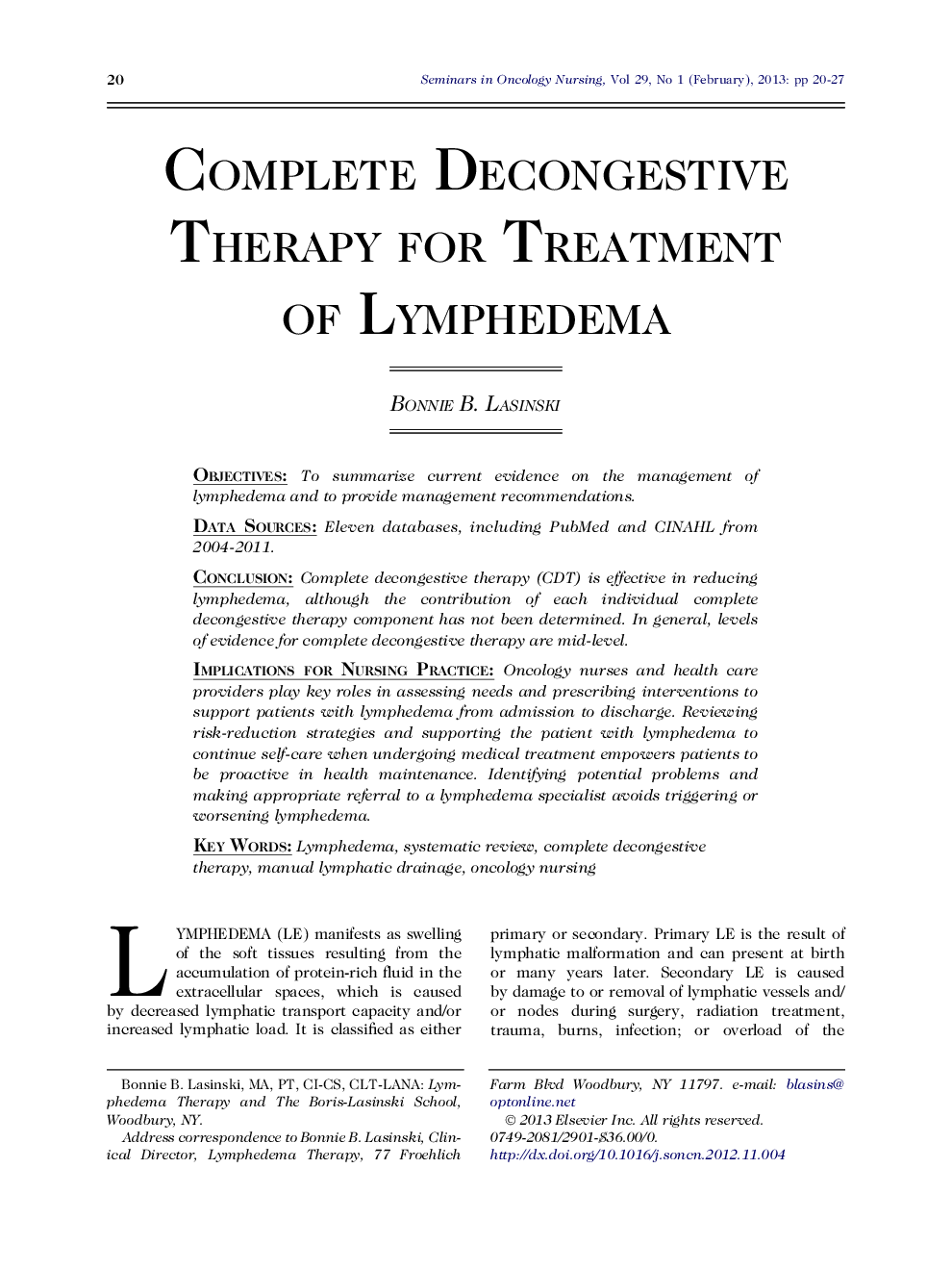| Article ID | Journal | Published Year | Pages | File Type |
|---|---|---|---|---|
| 2681630 | Seminars in Oncology Nursing | 2013 | 8 Pages |
ObjectivesTo summarize current evidence on the management of lymphedema and to provide management recommendations.Data SourcesEleven databases, including PubMed and CINAHL from 2004-2011.ConclusionComplete decongestive therapy (CDT) is effective in reducing lymphedema, although the contribution of each individual complete decongestive therapy component has not been determined. In general, levels of evidence for complete decongestive therapy are mid-level.Implications for Nursing PracticeOncology nurses and health care providers play key roles in assessing needs and prescribing interventions to support patients with lymphedema from admission to discharge. Reviewing risk-reduction strategies and supporting the patient with lymphedema to continue self-care when undergoing medical treatment empowers patients to be proactive in health maintenance. Identifying potential problems and making appropriate referral to a lymphedema specialist avoids triggering or worsening lymphedema.
